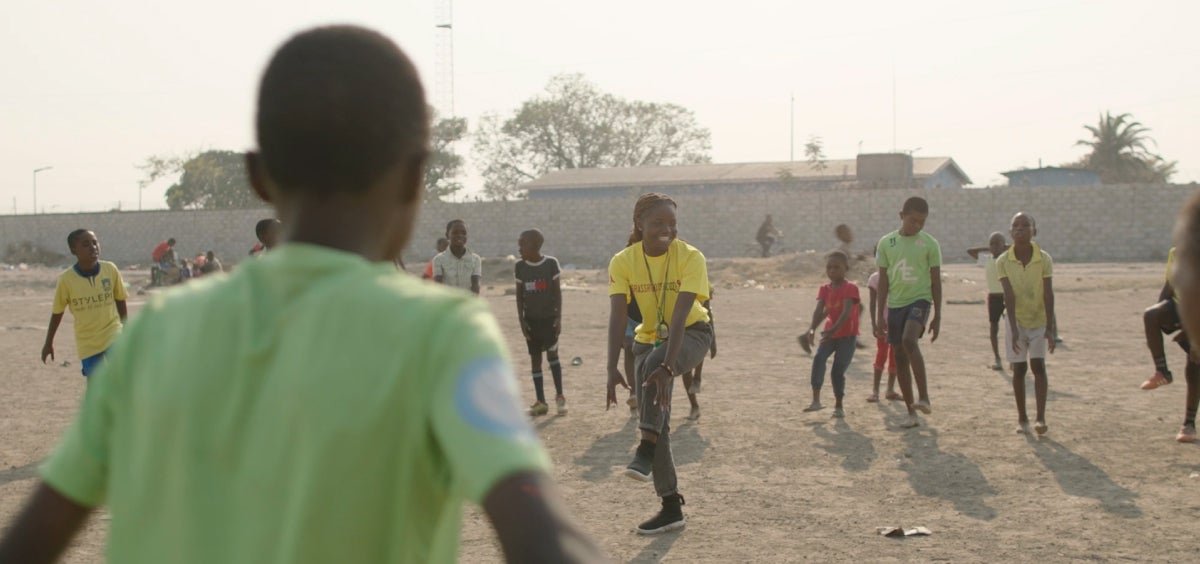Source: Africa Publicity
In the dusty streets of Bamako, Mali, a group of young boys gathers every evening to play football. Among them is Kofi, a passionate 12-year-old with dreams of becoming a professional player. He dribbles, passes, and shoots with infectious enthusiasm. Yet, Kofi’s talent alone is not enough to guide him to success; he needs something more—he needs guidance.
This guidance comes in the form of Coach Amadou, a former local football star who has dedicated his life to nurturing young talent. For Coach Amadou, the role of coaching is not just about teaching football skills but also about instilling values and discipline. His presence on the field is a beacon of hope and an essential pillar in the development of grassroots football.
Across the continent, in the coastal city of Mombasa, Kenya, the story is similar. Coach Amani runs a grassroots football program in the heart of one of the city’s most underserved neighborhoods. Here, football is more than a sport; it’s a lifeline. For many children, like 10-year-old Aisha, who dreams of escaping the constraints of poverty, football offers a chance to envision a brighter future.
Coach Amani understands the transformative power of football. His approach is holistic—emphasizing not just technical skills but also personal development. He teaches his players the importance of teamwork, respect, and perseverance. Under his guidance, Aisha and her teammates learn that football is not just about winning games but about building character and resilience.
In the rural town of Ouidah, Benin, the role of coaching takes on another dimension. Coach Yves, a retired school teacher with a deep love for football, works with children from various villages. The local infrastructure is minimal, and resources are scarce. Yet, Coach Yves manages to create a supportive and nurturing environment. He improvises with limited equipment, using old tires and makeshift goals to teach his players.
Coach Yves’s dedication extends beyond the football field. He actively engages with parents and community leaders to foster a supportive network for the children. His approach highlights the crucial role of community involvement in grassroots football. By building strong relationships with families and local organizations, Coach Yves ensures that the children receive the encouragement and resources they need to thrive.
In Johannesburg, South Africa, the focus of grassroots coaching is on inclusivity and diversity. Coach Zanele, a former national team player, runs a program that brings together children from various cultural and socio-economic backgrounds. Her philosophy is centered on the belief that football should be a universal language that bridges divides.
Coach Zanele’s sessions are carefully crafted to be inclusive and supportive. She addresses the unique challenges faced by each child, whether it’s overcoming language barriers or dealing with socio-economic pressures. Her coaching approach is tailored to meet the diverse needs of her players, ensuring that each child feels valued and supported.
The impact of coaching in grassroots football extends far beyond the field. In Lagos, Nigeria, Coach Efe’s program focuses on using football as a tool for social change. His team, comprised of children from different backgrounds, engages in community service projects and educational initiatives. Coach Efe believes that football can be a catalyst for positive change, teaching children the importance of social responsibility and community engagement.
Coach Efe’s program incorporates workshops on topics such as health, nutrition, and leadership. By integrating these elements into his coaching, he prepares his players not only to excel on the field but also to become responsible and informed citizens. His approach underscores the potential of grassroots football to contribute to broader societal goals.
In Addis Ababa, Ethiopia, the role of coaching is intertwined with the local culture. Coach Mesfin, a former player who is deeply rooted in the community, uses traditional Ethiopian values to shape his coaching philosophy. His sessions are infused with local customs and practices, creating a unique and culturally resonant experience for his players.
Coach Mesfin’s approach emphasizes respect for elders, communal support, and perseverance. These values are integrated into the training sessions, helping the players develop not only as footballers but also as individuals who embody the virtues of their culture. His coaching highlights the importance of aligning football training with cultural values to create a meaningful and impactful experience.
Throughout Africa, the role of coaching in grassroots football is multifaceted. Coaches like Amadou, Amani, Yves, Zanele, Efe, and Mesfin play a crucial role in shaping the future of young players. They provide more than just technical instruction; they offer mentorship, support, and inspiration.
Grassroots football programs across the continent rely on the dedication and creativity of coaches who navigate various challenges to provide their players with opportunities for growth. These coaches understand that football is a powerful tool for personal and community development. They use their positions to foster talent, build character, and promote positive values.
The importance of coaching in grassroots football cannot be overstated. Coaches are the unsung heroes who work tirelessly to nurture young talent and instill values that extend beyond the game. Their impact is felt not only in the success of their players but also in the broader communities they serve. By investing in grassroots football coaching, Africa can continue to unlock the full potential of its young players and harness the transformative power of the sport.








